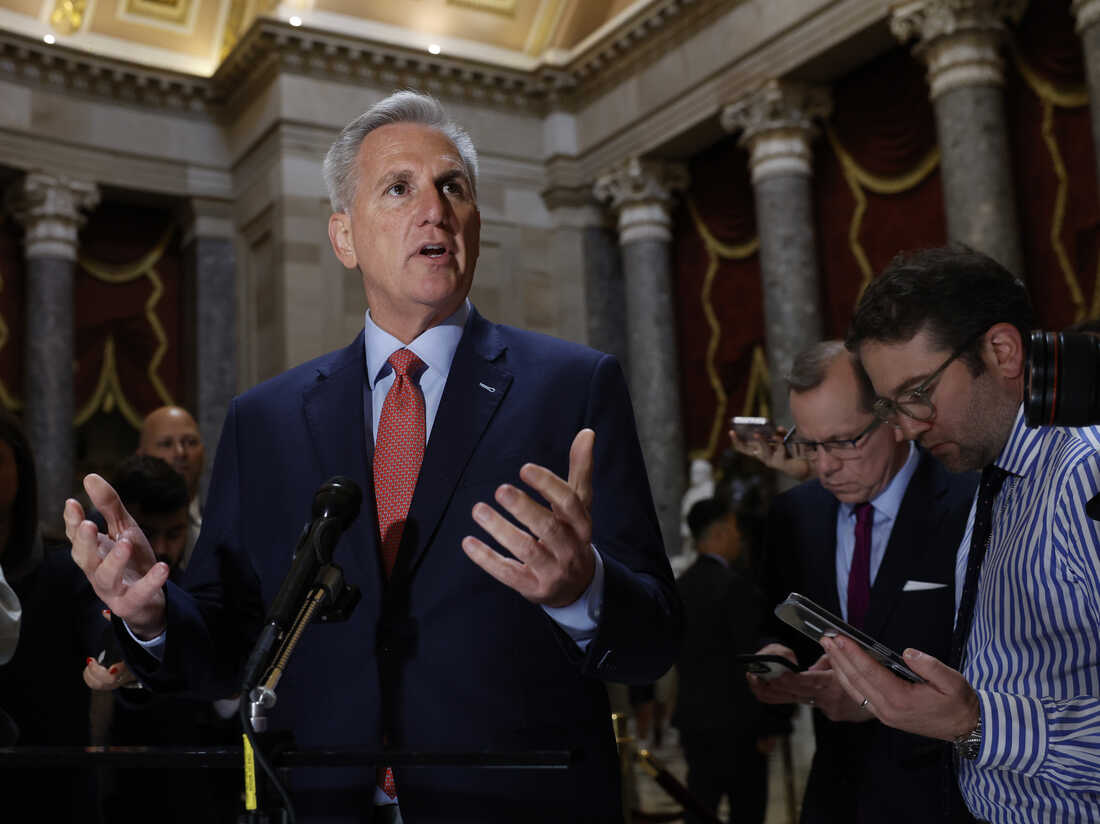The US Debt Ceiling: Understanding Its Significance and Implications
#safebull , Information , Learning , News
The United States debt ceiling is a topic that often sparks debates and concerns about the country’s fiscal health. It is a statutory limit on the total amount of debt the US government can accumulate to finance its operations. In this blog, we will delve into the concept of the debt ceiling, its significance, the […]
The United States debt ceiling is a topic that often sparks debates and concerns about the country’s fiscal health. It is a statutory limit on the total amount of debt the US government can accumulate to finance its operations. In this blog, we will delve into the concept of the debt ceiling, its significance, the implications of breaching it, and the ongoing debates surrounding this critical financial policy.
What is the Debt Ceiling?
The debt ceiling, also known as the debt limit, is a legal cap imposed by the US Congress on the amount of money the federal government can borrow to fund its expenditures. It represents the maximum level of outstanding debt that the government can hold at a given time.
The primary purpose of the debt ceiling is to ensure oversight and control over the government’s borrowing activities. It is intended to prevent excessive government spending, promote fiscal responsibility, and provide an opportunity for lawmakers to review and debate fiscal policies.
Implications of Breaching the Debt Ceiling
If the debt ceiling is breached, it has significant implications for the US economy and financial markets. Some potential consequences include:
- Government Shutdown: In the event of a breach, the US Treasury would have limited funds to meet its obligations. This could lead to a government shutdown, where non-essential federal services are temporarily halted until a resolution is reached.
- Downgrade of Credit Rating: Breaching the debt ceiling could raise concerns among credit rating agencies about the US government’s ability to honor its debt obligations. This could result in a downgrade of the country’s credit rating, leading to increased borrowing costs and a negative impact on financial markets.
- Market Volatility: Uncertainty surrounding the debt ceiling can cause market volatility and erode investor confidence. Stock markets may experience turbulence, and interest rates may rise as investors demand higher yields to compensate for perceived risks.
The debt ceiling has been a contentious issue in US politics, with debates centering around various viewpoints:
- Fiscal Responsibility: Advocates for a lower debt ceiling argue that it promotes fiscal discipline and forces the government to address spending habits and reduce budget deficits.
- Economic Impact: Critics of the debt ceiling argue that breaching it can have severe economic consequences, potentially leading to a recession or financial crisis. They advocate for a more flexible approach that ensures the government can fulfill its financial obligations without unnecessary disruptions.
- Structural Reforms: Some propose structural reforms, such as adopting a more comprehensive budget process or addressing entitlement spending, to reduce the need for frequent increases in the debt ceiling.
The US debt ceiling plays a crucial role in shaping fiscal policy and ensuring government accountability. Its breach has significant implications for the economy, financial markets, and the reputation of the United States. The ongoing debates surrounding the debt ceiling highlight the need for a careful balance between fiscal responsibility and the smooth functioning of the government. As the discussions continue, it remains vital for policymakers to find sustainable solutions that ensure the country’s financial stability while meeting its obligations to its citizens and creditors alike.
DEBT CEILING NEGOTIATIONS OF 2023
Democratic President Joe Biden and a Republican negotiator said on Friday they were working on a deal to raise the U.S. government’s $31.4 trillion debt ceiling after the Treasury Department warned that a June 5 default loomed without action.
The two sides have been negotiating for weeks on an agreement to raise the federal government’s self-imposed borrowing limit, with Republicans also pushing for sharp spending cuts. Without a deal, the United States could face a calamitous default.
“Things are looking good,” Biden told reporters. “I’m optimistic.”
Republican Representative Patrick McHenry said he concurred with Biden’s comments, while cautioning that negotiations had not yet concluded.
“I’m hopeful,” said McHenry, one of House of Representatives Speaker Kevin McCarthy’s lead negotiators with the White House. “But we have to make sure we have a line on tax, we have a line on agreement – there’s significant challenges ahead.”
